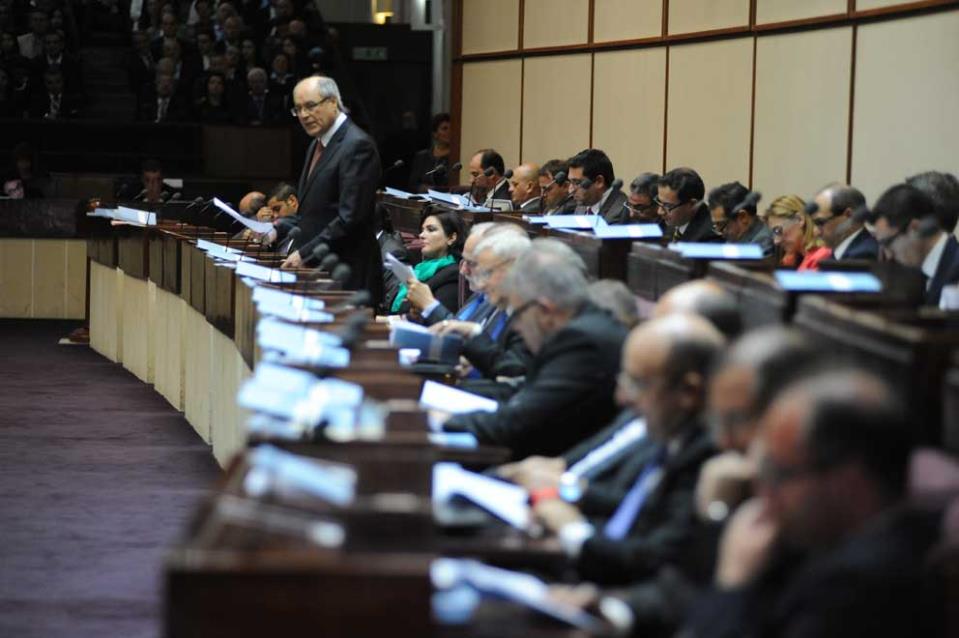Josef Bugeja who is next in line to be the General Workers’ Union secretary general, replacing Tony Zarb, said that public sector employment is well under control.
Secretary General designate Bugeja pointed out that there was a need for additional health professionals to be employed in the public sector, especially carers. He highlighted that at one point in time, foreign nurses were being engaged to fill the void of Maltese nurses.
“When the PN ruled, I had meetings with then ministers who said they preferred to have public sector workers working overtime then having more people join the sector, a suggestion the GWU disagrees with.
“Our aim should always be that overtime is not imposed on employees. We have to focus on the work-life balance” Mr Bugeja stressed.

GWU Budget expectations
He explained that the Budget is another building block which needs to continue to address a number of issues pertaining to people working in precarious working conditions, poverty and middle-class families.
On precarious jobs, he said that much more needs to be done to tackle this phenomenon while emphasising that those at risk of poverty should be the first to benefit from any wealth created.
He also emphasised that the budget should incentivise further individuals who are willing to further their skills through training since “the GWU receives many complaints from companies regarding the fact that there aren’t enough Maltese people with skills to take up certain jobs”.
Extended sick leave for parents
Mr Bugeja said that the union agrees with extended sick leave for parents whose child is sick but the issue at stake is how it will be implemented.
“We need to amend the law and not just for parents who are in employment but the law should also cover their children.”
Explaining further, he said that employees have to abide to their contractual conditions on sick leave which are based on current legislation. As things stand, there exists a conflicting issue since doctors medically certify employees and not third parties.

Energy prices
The GWU, he said, is always in favour of tariff reductions when asked whether the union feels that energy prices should be decreased once again to reflect the current oil prices.
But he emphasised that one should keep in mind Enemalta’s stability and sustainability.
In other words, Mr Bugeja feels that the government has to be cautious and not simply decrease energy tariffs further because oil prices are down.
Is wealth being equally distributed?
Asked whether he feels that it is high time people start getting a portion of the wealth that is being created, he said that the next step should be that of analysing whether economic growth is being reflected in salaries of workers at roughly the same rate.
Companies operating from Malta facing stiff internal competition
He referred to a recent collective agreement deal struck between the GWU with ST Microelectronics.
The issue at stake is that companies such as ST – which has plants in other countries such as China -are facing stiff competition within the same group.
He said that the argument raised by ST’s management was that it is useless having a good economy in one country and having a weak economy in another the same group is operating in, irrelevant if the group is operating in a healthy economic environment such as in the case of Malta.
“An issue which comes into play is the fact that it all depends on how much economic growth there is in China or the EU for instance,” he explained.

Youth unemployment
Mr Bugeja said that it is evident youth unemployment is down, evident from recent statistics issued.
“Now, our next step should be to focus on quality jobs for our youths but for this to happen, youths need to further their skills and adapt to sectors which are making headway.
‘Warm’ characteristics of Maltese workers may be deteriorating
Mr Bugeja said that Maltese workers are known for serving customers in a friendly manner.
“This characteristic is deteriorating as time goes by since foreigners are taking up jobs in the hospitality industry.
“The poor pays and conditions may be the problem of foreigners taking over the industry’s jobs,” he said.
Private schools and family friendly measures
Mr Bugeja pointed out that although the two sectors – public and private – should operate under the same conditions in terms of family friendly measures, unfortunately this is not the case.
“The private sector only implements family friendly measures which have been made law, opposed to the public sector which goes a step further.
“And the same goes for private schools,” he highlighted.
Family friendly measures have been put in place for parents whose children attend state schools but in the case of private schools it is not always the case, he explained.
“For instance, state schools have the Breakfast Club service in place at no charge for parents of children attending the club, while parents of children attending private schools are forced to pay an extra fee on top of the exorbitant fees charged to have their children attend school earlier,” he said.

Cost of living increase
Asked whether it is time the COLA adjustment system is changed, he said it is the products and services the formula is based on which need to be changed.
He also suggested that the COLA should be adjusted twice a year.
Pension reform
As things stand, it is up to the employer to decide whether he or she will keep an employee who wants to stay in employment after retirement age on board.
On this point, he said that before pensionable age and retirement age are separated, one has to delve into whether this would affect the labour market.
But Mr Bugeja said he believes that at some point in time, one has to call it a day and enjoy retirement.
Minimum wage should be increased at all costs
On the minimum wage, he said it should be increased at all costs since it “is a struggle to live on such a wage”.
On free childcare, he said that the incentive is leaving its desired results, evident from the rate of unemployed women, which is down to 5.4% from 6.3%.
Precarious employment
On security personnel, he said that security company contractors were paying employees who render a service to the government more than contractors whose employees were rendering a service to the private sector. This, he said, is the wrong approach since it discriminates between people working in the same sector or company.
“We want the same rates to be applicable to employees rendering the same service to the private sector,” he said.

Social partners need to compromise more
He said that social partners need to compromise a bit more and need to understand each other’s position, mainly referring to the employee vs employer aspect.
“At times I feel that a social partners need to be more ethical in the way they approach a situation. I always go to negotiate with companies in good faith. It is only when we cannot reach a compromise and would have exhausted all avenues that we order industrial action. If social partners better understood each other, then this would prevent obstacles.”